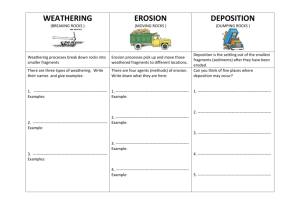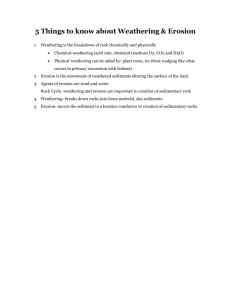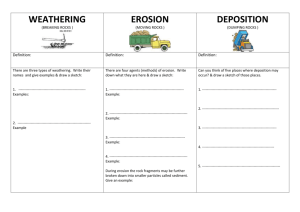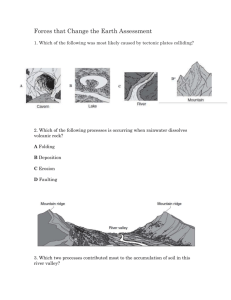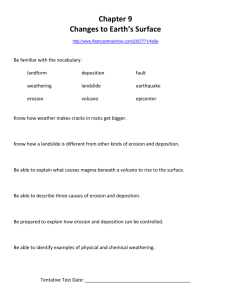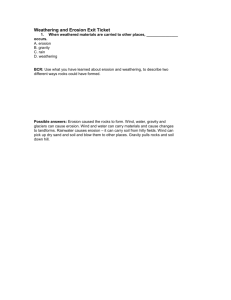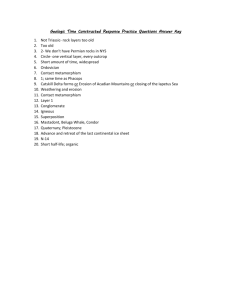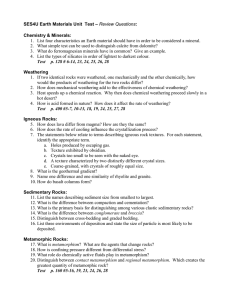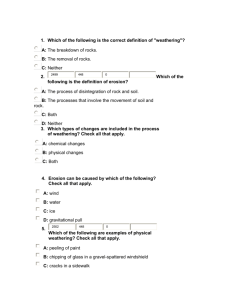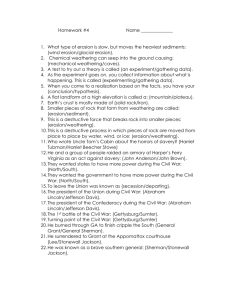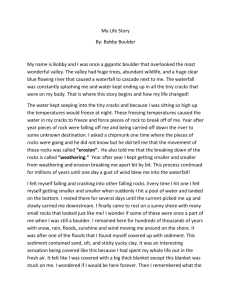Earth Science Review Sheet (Regents) Project
advertisement
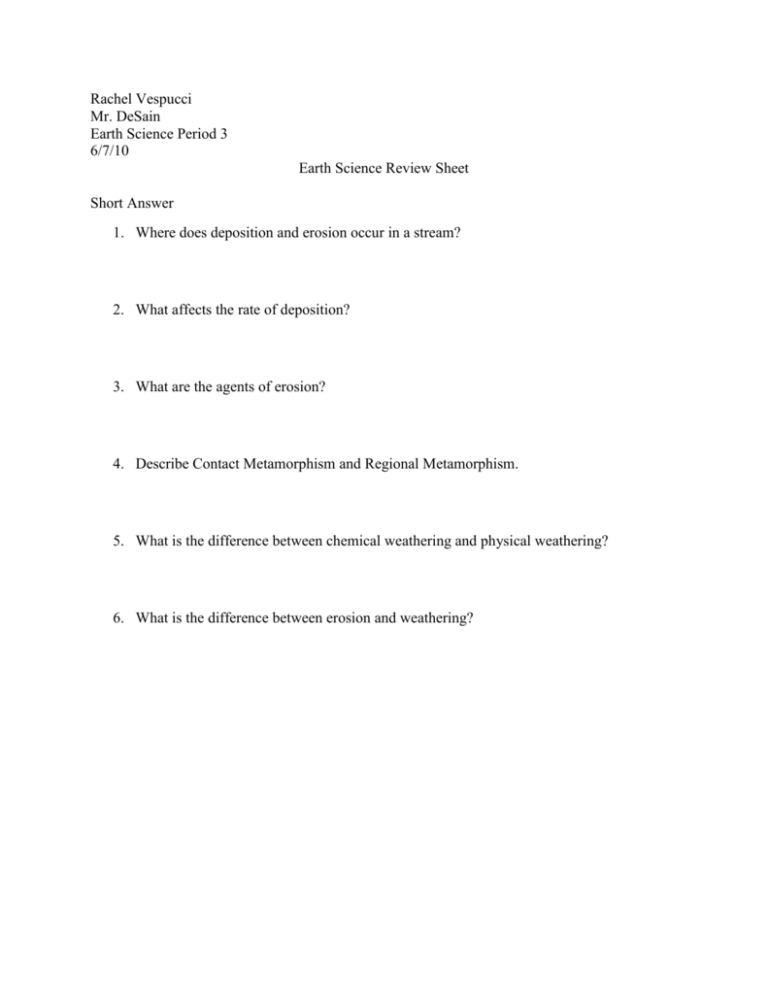
Rachel Vespucci Mr. DeSain Earth Science Period 3 6/7/10 Earth Science Review Sheet Short Answer 1. Where does deposition and erosion occur in a stream? 2. What affects the rate of deposition? 3. What are the agents of erosion? 4. Describe Contact Metamorphism and Regional Metamorphism. 5. What is the difference between chemical weathering and physical weathering? 6. What is the difference between erosion and weathering? Multiple Choice 1. What are tightly packed and unsorted particles best for? a. Permeability b. Porosity c. Capillary Action d. Runoff 2. What are the best conditions for runoff? a. Ground is impermeable and saturated b. Ground is permeable and saturated c. Ground is impermeable and unsaturated d. Ground is rocky 3. If an observer is at 23.5° S on what day would an observer see the sun directly overhead? a. June 21 b. March 21 c. September 23 d. December 21 4. When an observer is in New York, where would they look to find the Sun? a. North b. South c. East d. West 5. What causes ocean currents to rotate clockwise in the Northern Hemisphere, and counterclockwise in the Southern Hemisphere on Earth? a. Foucault pendulum b. Tides c. Coriolis Effect d. Seasons 6. When is the earth closer to the sun and tilted away? a. Spring b. Summer c. Winter d. Fall Answers: Short Answer 1. 2. 3. 4. In a stream, deposition occurs on the inside bend, and erosion occurs on the outside bend. Size, shape, density, and saturation affect deposition. The agents of erosion are gravity, running water/streams, wind, glaciers, and waves. Contact Metamorphism is when a body of magma pushes up and intrudes on other native rocks; the surrounding rocks get baked because of the heat (not melted). Regional Metamorphism is when large sections of the lithosphere collide; rocks are squished and subjected to high temperature and pressure. These rocks are usually extremely folded. 5. Chemical weathering is the breakdown of rock through a change in mineral or chemical composition. Physical weathering is the breakdown of rock into smaller pieces without chemical change. 6. Erosion is the weathering of rock producing particles that are transported sediments. Weathering is the chemical and physical breakdown of rocks at or near Earth’s surface. Multiple Choice 1. 2. 3. 4. 5. 6. C A D B C C
